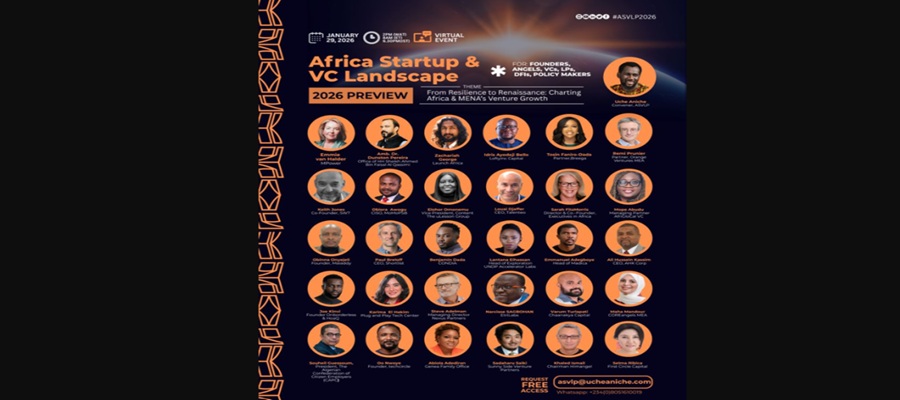Telecom
Navigating the Path to Sustainable Telecom Services for Subscribers

By Dinesh Balshingh
As Nigeria continues its journey towards becoming a digitally driven economy, reliable telecommunications services remain the backbone of our collective progress. At Airtel Nigeria, we are committed to delivering world-class connectivity to millions of Nigerians, enabling economic growth, empowering businesses, and enhancing lives.

We understand that the future technology needs of the country, as ushered in by the highspeed 5G era of AI, Cloud computing, Data science applications, and Blockchain, should be directing significant investments towards building a resilient network. However, the industry faces significant challenges that require a closer look as we strive to maintain the high standards that our customers deserve.
Increased Intensity of Investments: The increasing demand for digital services across sectors such as education, media, banking, transportation, and manufacturing has come with an increased demand on telecom capacity.
Upgrading networks to deliver more data capacity is key to a sustainable future. To help ensure that the Nigerian economy keeps pace with the global improvements in technology and communications while supporting the aspirations of consumers, we also take on the responsibility of executing new technology and system upgrades as well as improved security. Data security is now more than ever a priority as more and more people upload personal information online.
All of these require significant investments which are sourced from the international markets at costs denominated in US Dollars. In the past three to four years, for instance, the dollar has gone from exchanging for about N500 to over N1,600.
This more than three-fold increase in foreign exchange conversion exponentially increases the cost of investments required to run a good quality network.
In addition to this unprecedented hike in capital expenditure, the operating costs have surged dramatically, with operating expenses rising by over 300% in the last 18 to 24 months alone.
While several critical areas of the business are impacted, I would, for expediency, focus on three of those areas: Rising Energy Cost, Infrastructure Challenges, and a Commitment to Quality Service.
Rising Energy Costs: Powering telecommunication infrastructure requires significant energy resources. Energy is the single largest operating cost for running a network. With increasing global energy prices and while efforts are ongoing to fully stabilize power supply in Nigeria, Airtel Nigeria and other operators in the sector are incurring soaring costs to keep networks running seamlessly.
Infrastructure Challenges: The industry continues to grapple with rampant fiber cuts and vandalization of critical infrastructure. These incidents not only disrupt services but also demand substantial investments to repair and maintain facilities.
Commitment to Quality Service: Despite these challenges, Airtel Nigeria has remained steadfast in ensuring quality of service. From expanding 4G and 5G networks to meeting growing demand in urban and rural areas, we have painstakingly absorbed the rising costs of these obligations to avoid compromising the customer experience and ensuring Nigerians, regardless of their location, have access to mobile communication and remain connected to the digital economy.
Telecommunications operators have worked tirelessly to sustain services despite keeping tariffs unchanged for the last 10 years. While tariffs have remained static for over a decade, the economic realities necessitate a review to ensure the sustainability of services hence our recent application to the government for tariff adjustment which if approved will be a step towards addressing this imbalance.
It is not a decision taken lightly but one borne out of the need to guarantee continued investment in network expansion, technology upgrades, and improved service delivery.
The telecommunications sector is pivotal to Nigeria’s ambition to become a digital economy leader in Africa. Meeting this aspiration requires operators to make substantial investments in network infrastructure, spectrum acquisition, and innovative solutions. These investments come at a cost, one that must be shared proportionally to ensure long-term viability.
At Airtel Nigeria, we remain resolute in our commitment to:
Delivering Quality Services: As the government continues to monitor operators’ compliance with service quality standards. Airtel is dedicated to surpassing these benchmarks, ensuring customers experience uninterrupted and superior connectivity.
Driving Economic Growth: By expanding our network and enhancing digital inclusivity, we are enabling the government’s economy turnaround agenda and fostering opportunities for all Nigerians.
Being a Reliable Partner: Despite industry challenges, we are steadfast in our role as a trusted partner in Nigeria’s digital transformation journey.
While significant tariff adjustments have become warranted for the sustainability of the industry, Airtel has always been sensitive to affordability and understand that the price adjustments must be done gradually to support our customers’ financial positions.
“We believe that an approval of revised tariffs will empower operators to invest in capacity, expand coverage to underserved areas, aim for advanced security on the networks, and improve service quality and network availability while ensuring that Nigeria remains competitive in the global digital landscape.
As we navigate the present imperatives together, we urge all stakeholders, including customers, regulators, and partners to recognize the importance of building a resilient telecommunications ecosystem. Airtel Nigeria remains committed to delivering unmatched value while supporting the nation’s economic development.
Dinesh Balsingh is the Managing Director/CEO of Airtel Nigeria.
Telecom
ASVLP 2026: Africa, MENA VCs Gear Up as Tech Funding Hits $4.1bn Rebound

As Africa and MENA’s startup ecosystems transition from post-correction resilience into a new phase of disciplined growth, the Africa Startup & VC Landscape Preview (ASVLP 2026) will convene leading founders, investors, policymakers, and ecosystem builders on January 29, 2026, for its second annual, agenda-setting virtual forum.

Following a challenging global venture cycle, 2025 marked a notable rebound across the African ecosystem, with startups raising an estimated $3.2–$3.3 billion over the full year.
The recovery was accompanied by significant structural shifts: Kenya emerged as the leading destination among Africa’s “Big Four” markets for the first time, while Nigeria recorded a year-on-year funding decline, reflecting changing investor preferences, macroeconomic pressures, and a broader recalibration toward capital efficiency and sustainability.
Sectorally, fintech remained the most funded vertical, while climate & energy, AI-enabled solutions, healthtech, and infrastructure-adjacent businesses gained increasing attention. Across Africa and MENA, development finance institutions (DFIs) and family offices played a more pronounced role in anchoring funds, deploying catalytic capital, and supporting blended-finance structures, reshaping how early-stage and growth capital is mobilized.
ASVLP 2026 is designed to translate these data points into forward-looking strategy.
The forum will bring together venture capitalists, angel investors, LPs, DFIs, family offices, founders, corporate leaders, and regulators from Africa, MENA, Europe, and North America to assess 2025 outcomes and chart priorities for 2026.
The program will feature keynotes, fireside chats, panels, and deep-dive roundtables, including discussions on:
· The 2026 Africa & MENA FinTech Landscape, focusing on security, profitability, regulation, and growth frontiers
· Emerging Fund Managers, capital formation, and LP alignment
· Talent, operator depth, and institutional capacity as constraints to scale
· Regulatory evolution and cross-border market integration
A major highlight of ASVLP 2026 will be the Final DealRoom Pitch Session, where a curated group of high-potential startups will present to an experienced panel of investors.
• Founders can apply to pitch via: bit.ly/ASVLP-DR-Founders
• Investors seeking DealRoom access can request entry via: bit.ly/ASVLP-DR-Investors
Confirmed speakers for ASVLP 2026 include Khaled Ismail (HIMangel), Idris Ayodeji Bello (LoftyInc Capital), Zachariah George (Launch Africa), Tosin Faniro-Dada (Breega), Selma Ribica (FirstCircle Capital), Maha Mandour (COREangels MEA), Joe Kinvi (Borderless), Remi Prunier (Orange Ventures MEA), Karima El Hakim (Plug and Play Tech Center), Souheil Guessoum (President, The Confederation of Citizen Employers – Algeria (CAPC)), Remi Prunier (Partner, Orange Ventures, MEA), Maha Mandour (COREAngels MEA), Ali Hussein (President, Kenyan FinTech Association), Patrick Okebu (CIO, Interswitch Group) among other leading voices shaping capital, policy, and innovation across the region.
“The conversation has shifted,” said Uche Aniche, Convener of ASVLP. “It’s no longer about whether capital will return to Africa and MENA, but what kind of capital, deployed with what discipline, and in service of which long-term outcomes. ASVLP exists to help the ecosystem make sense of that transition.”
Participation in ASVLP 2026 is free but strictly by invitation.
Interested participants are encouraged to repost the official announcement on LinkedIn and comment #ASVLP2026 to receive a private registration link. They could also email [email protected] and request invite.
Telecom
TikTok, Instagram Blamed in US Youth Suicide Lawsuit

Major social media giants Meta Platforms, TikTok and Alphabet’s YouTube will face a landmark jury trial this week in Los Angeles County Superior Court over allegations that their addictive designs have fuelled a youth mental health crisis, marking the first such case to reach this stage.

Social Media
The pivotal personal injury lawsuit centres on a 19-year-old Californian woman identified as K.G.M., who claims her childhood immersion in Instagram, Facebook, YouTube and TikTok—engineered with endless scrolls, autoplay videos, notifications and algorithms—sparked severe anxiety, depression and suicidal thoughts.
Dozens of similar suits have surged since 2022 from families, schools and states, accusing the firms of burying internal research on teen harms while prioritising ad revenue through youth-targeted engagement hooks, despite Section 230 protections for user content.
Plaintiffs seek damages and design overhauls, arguing platforms bypassed parents and preyed on vulnerable kids; defendants counter there’s no clinical “social media addiction” diagnosis, no proven causation—kids with issues often use less—and they’ve added safeguards like parental controls and time limits.
Echoing Australia’s under-16 bans, the trial will scrutinise thousands of internal documents, expert testimonies and K.G.M.’s story, potentially expanding tech liability amid debates where studies show complex links, not direct causation, between screen time and disorders like eating issues or self-harm.
A win could mandate warning labels, age gates or algorithm tweaks, reshaping global platforms as U.S. Surgeon General advisories and global scrutiny intensify pressure on Big Tech to prioritise child safety over profits.
Telecom
Meta Tests Paid Subscriptions Across Instagram, Facebook, WhatsApp

Meta is gearing up to trial paid subscription services on Instagram, Facebook, and WhatsApp, aiming to diversify revenue streams beyond advertising while maintaining free core access for all users.

Meta
The subscriptions will offer enhanced tools tailored for everyday users, creators, and businesses, including advanced content creation, sharing, and workflow features distinct from the existing Meta Verified verification program. Unlike a uniform rollout, Meta plans varied testing formats per app to match diverse audiences, experimenting with feature bundles based on user feedback to refine the model.
A key element involves integrating Manus, the autonomous agent firm Meta acquired for $2 billion in December, into these apps alongside its enterprise sales. Manus enables complex task automation with minimal input, with early signs like Instagram shortcuts already spotted by reverse engineer Alessandro Paluzzi.
Video tools feature prominently: Meta’s Vibes short-form video generator in the Meta AI app shifts to freemium, where paid tiers unlock higher monthly creation limits beyond the free baseline. On Instagram, subscriptions could enable unlimited audience lists, non-follower tracking, and anonymous Story views, though specifics for Facebook and WhatsApp remain under wraps.
Drawing from Meta Verified’s 2023 launch—which provides badges, support, and protection mainly for creators—these broader plans target wider appeal amid industry shifts. Ad growth slows against TikTok competition, while Snapchat+ boasts 16 million subscribers at $3.99 monthly, proving demand for value-driven paid perks despite subscription fatigue risks from streaming and storage fees.
Meta will phase tests gradually, prioritizing feedback to shape long-term viability without alienating free users.

 News3 days ago
News3 days agoLIRS to Invoke NTAA to Recover Unpaid Taxes from Bank Accounts, Others

 News3 days ago
News3 days agoAnambra Cuts Monday Pay to Kill Sit-at-Home

 E-Financial3 days ago
E-Financial3 days agoFirst Asset Management Receives Upgraded Ratings from Agusto &Co and DataPro

 E-Financial3 days ago
E-Financial3 days agoNIBSS, Others Flag 13,417 Nigerian Fraudsters on Person of Interest Portal

 General News3 days ago
General News3 days agoNigeria Treats Religious Violence as Attack on State – NSA Ribadu

 E-Financial3 days ago
E-Financial3 days agoCBN Prepares Fresh Debit Card Rules to Improve ATM Services

 E-Financial2 days ago
E-Financial2 days agoCBN Upgrades Licences of Opay, Moniepoint, Kuda, Palmpay, Paga to National Status

 News2 days ago
News2 days agoTech Executives Double Down on AI, Talent and Adaptive Strategies to Lead in the Intelligence Age

























